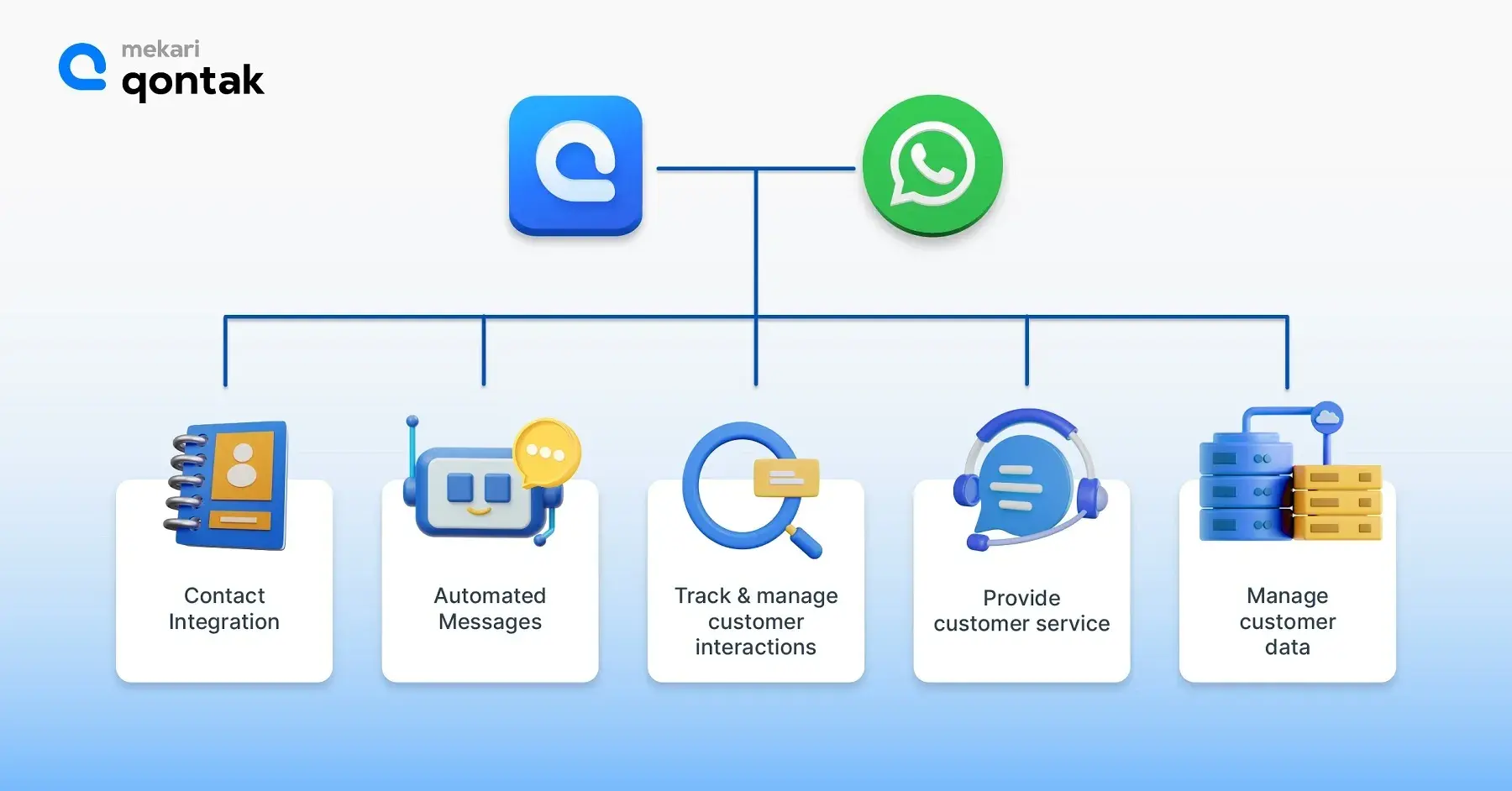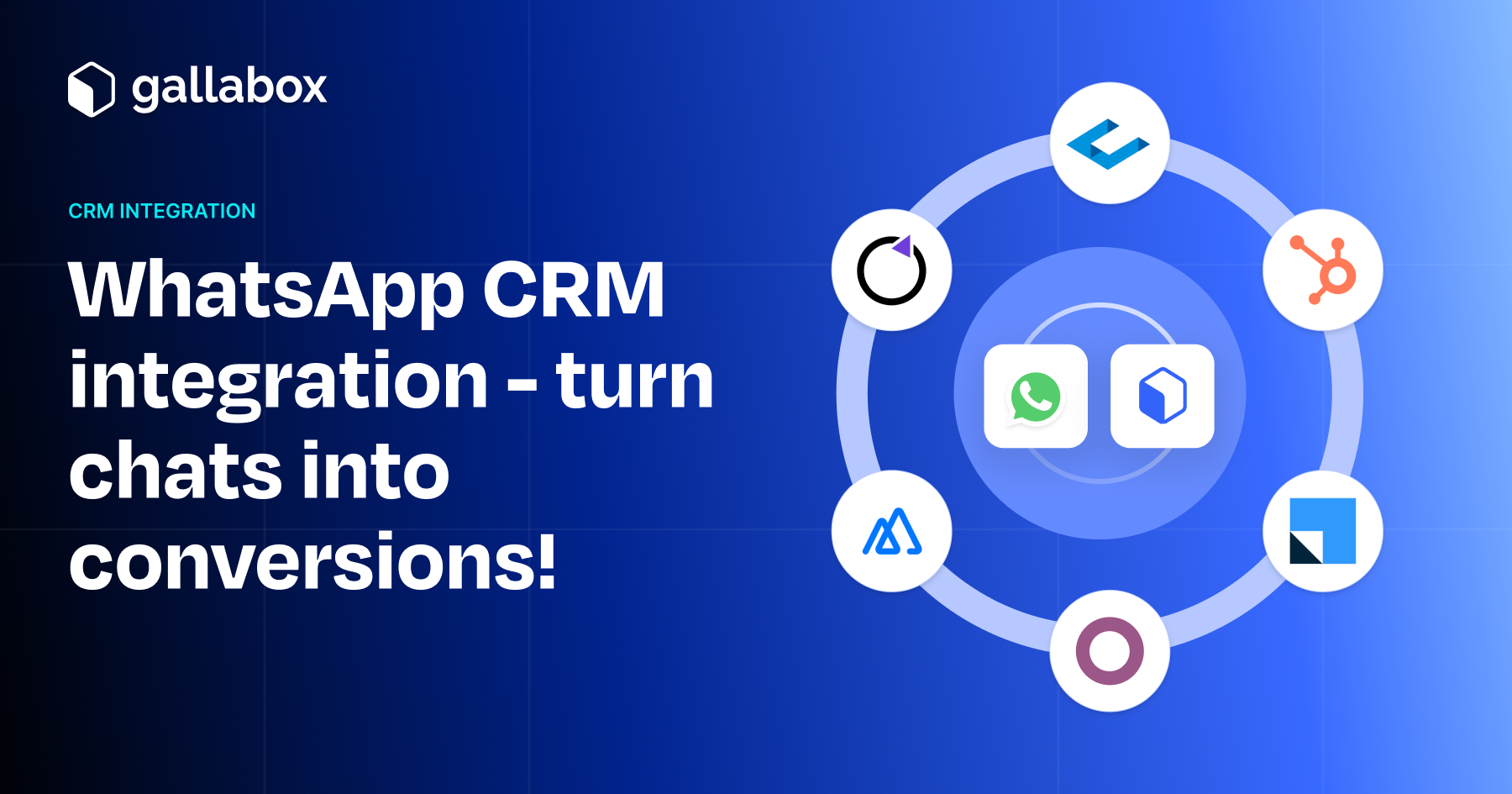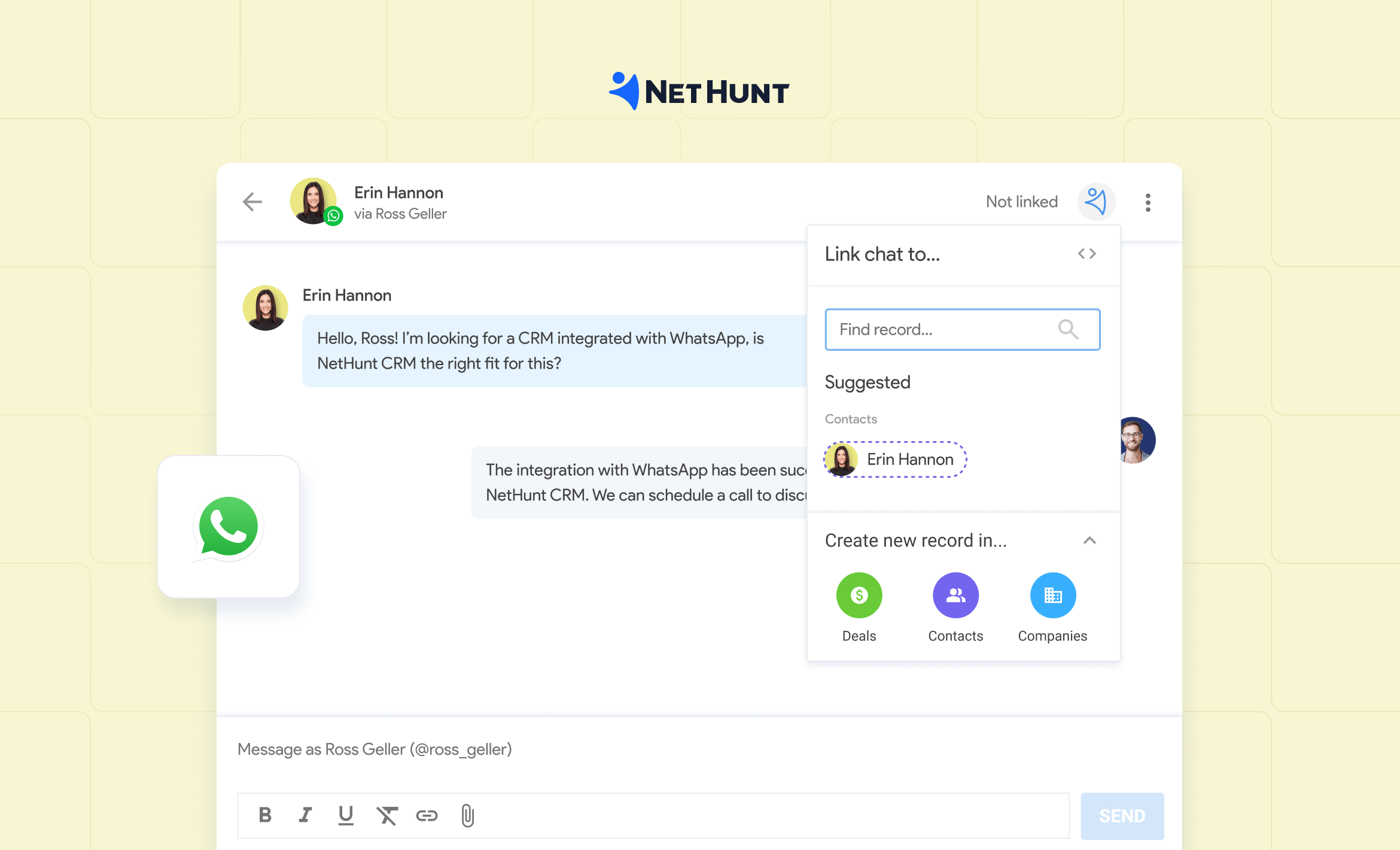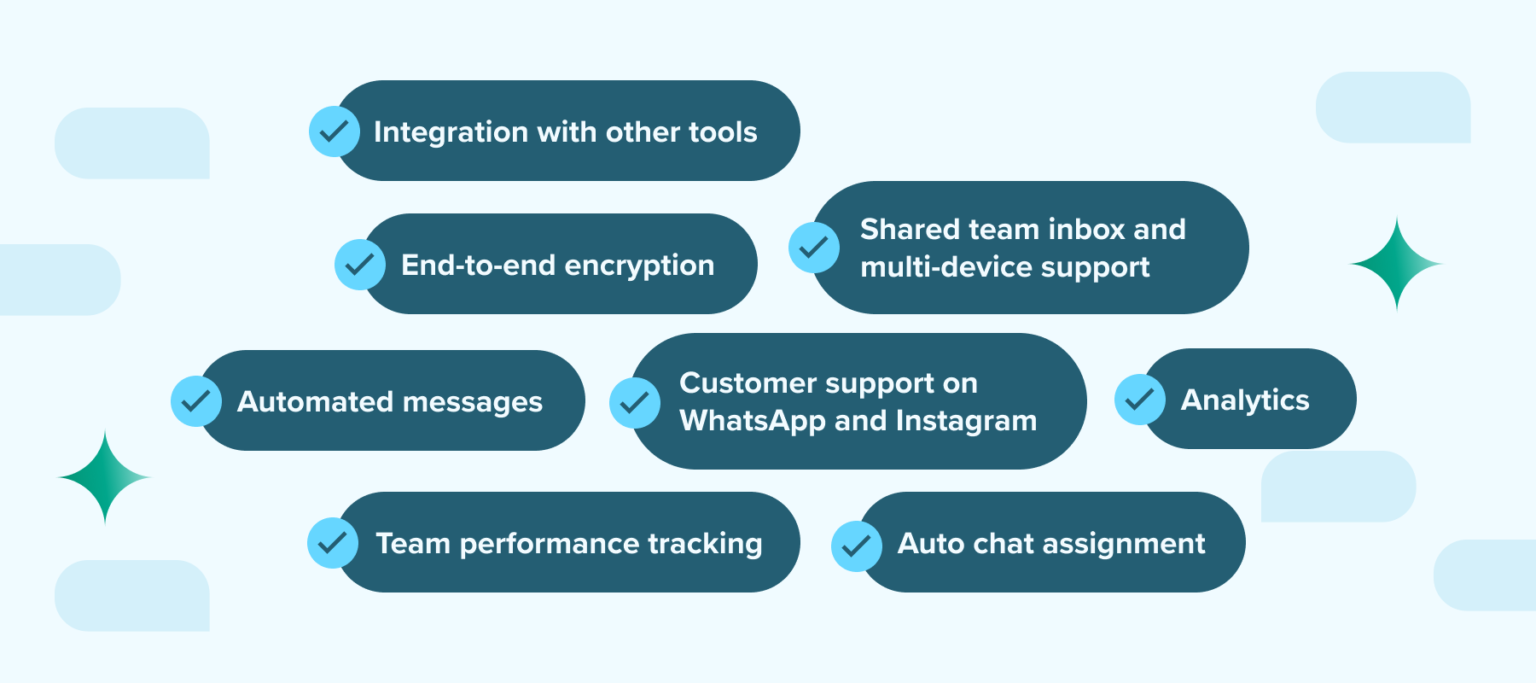Are your customer conversations scattered across apps and spreadsheets? Do your sales and support teams struggle to track inquiries, follow up leads, or respond quickly on WhatsApp? The solution is here: learn how to integrate WhatsApp and CRM automatically to bring all your chats, contacts, and customer data into one place—without any manual work!
In this in-depth guide, you’ll discover the power of integrating WhatsApp with your CRM system. We’ll show you what WhatsApp-CRM integration means, why it’s vital for modern businesses, and, most importantly, how to connect WhatsApp and CRM automatically so your team never misses an opportunity. Whether you want to boost sales, automate customer support, or just make your workflow more efficient, this article has you covered—with actionable steps, real examples, images, and expert-backed tips.
What is WhatsApp and CRM Integration?
Before diving into how to integrate WhatsApp and CRM automatically, let’s clarify what it actually means. CRM (Customer Relationship Management) systems like Zoho, Salesforce, or HubSpot are designed to organize, track, and nurture your customer relationships. However, with billions of people using WhatsApp for personal and business messages, it’s fast becoming the #1 channel for interacting with prospects and customers.
When you integrate WhatsApp and CRM automatically, you connect your WhatsApp Business (API or App) directly with your CRM tool. That means every WhatsApp chat, contact, deal, and ticket is logged and updated in real time, without copy-paste or manual tracking. Contacts and conversations flow both ways, so you can:
- Send and receive WhatsApp messages directly from your CRM
- Save WhatsApp leads and conversations to the right contact, deal, or ticket
- Trigger automated WhatsApp follow-ups, reminders, or notifications from your CRM
- Have a 360° customer view with all WhatsApp chat history inside the CRM

Why Integrate WhatsApp and CRM Automatically?
Why go through the effort to integrate WhatsApp and CRM automatically? Here are some of the most compelling benefits for any business:
- Automated Data Capture: Customer messages, details, and leads flow into your CRM in real time. No more lost details or duplicate entries.
- Instant Response & Follow-Up: Set up smart replies, reminders, or nurture sequences to trigger after every WhatsApp inquiry—automatically.
- Omnichannel Customer View: See every WhatsApp message, along with emails, calls, and notes, for richer context and personalization.
- Save Time & Reduce Errors: Remove manual copy-pasting, data silos, or back-and-forth between apps. Less admin means more selling or support.
- Boost Conversions & Satisfaction: Customers get fast, consistent replies, and your team never misses a follow-up—leading to higher CSAT and sales.

Top Benefits at a Glance
- Centralizes WhatsApp conversations in CRM
- Automates follow-ups, reminders, and drip campaigns
- Saves agents dozens of hours weekly
- Improves sales, support, and marketing performance
Use Cases: Real-World Examples of WhatsApp-CRM Integration
To truly understand how companies are reaping the benefits, let’s look at some use cases for integrating WhatsApp and CRM automatically:
1. Lead Capture & Automated Nurturing
A property consultant uses an online form to generate leads. When a prospect fills the form, their WhatsApp number is auto-logged in the CRM. They instantly get a WhatsApp greeting via API, and follow-up reminders are triggered inside the CRM for the sales team.
2. Customer Support Ticketing
An ecommerce store receives WhatsApp queries and complaints daily. Each incoming WhatsApp message opens a new CRM support ticket with customer details and chat history attached—making it easy to assign, escalate, or resolve within SLA.

3. Sales Pipeline Management
A SaaS company uses WhatsApp for demos. Every WhatsApp chat links with a CRM sales deal. Broadcasts and campaign updates go out via WhatsApp from the CRM, and all related messages are logged in the deal timeline—eliminating guesswork.

4. Appointment Reminders & Alerts
Healthcare providers or salons can automatically send WhatsApp appointment confirmations, reminders, and follow-up messages—triggered by calendar events in the CRM, with full conversation tracking.

Step-By-Step: How to Integrate WhatsApp and CRM Automatically
Ready to integrate WhatsApp and CRM automatically? Here’s a complete roadmap for setting it up, regardless of your preferred tools:
Step 1: Choose the Right CRM & WhatsApp Solution
Not all CRMs natively support WhatsApp integration. Choose a modern CRM like Zoho, Salesforce, HubSpot, Freshsales, or specialized tools like TeleCRM, Gallabox, Wati, or Interakt—these either have built-in WhatsApp modules or offer API/webhook support or direct app integrations.

Step 2: Set Up Official WhatsApp Business API
The WhatsApp Business API is essential for full automation, broadcasting, and CRM integration. Apply for WhatsApp API access via providers such as Meta, Twilio, Gupshup, Wati, or Interakt. You’ll need a verified business number and Facebook Business Manager account.
Step 3: Connect CRM and WhatsApp (3 Options)
- Native Integration: Some CRMs (like Zoho, Salesforce) offer ready-made WhatsApp integration modules—activate, authenticate, sync, and go!
- Third-Party Connectors/Marketplaces: Tools like Zapier, Make (Integromat), or CRM app stores let you build “if this, then that” automations to push data between WhatsApp and CRM based on triggers (e.g., new WhatsApp message → create CRM lead).
- Custom API/Webhook Integration: For advanced needs, set up direct connections with your developer or IT team. Use WhatsApp API/webhooks to run workflows (e.g., on new CRM deal, send WhatsApp message; or, on incoming WhatsApp, create ticket in CRM).
Step 4: Map Fields and Design Workflows
Map WhatsApp contacts to CRM fields like phone, name, company, and preferences. Define which events or messages should trigger CRM actions (ticket creation, lead assignment, notifications) and which CRM rules trigger WhatsApp responses (drip, reminders, updates).
Step 5: Test, Train, and Launch
Run sample workflows to ensure messages are syncing, contacts are auto-created, and no details are lost. Train your sales and support staff to use CRM’s WhatsApp features (reply, tag, escalate). Then go live—enjoy zero manual entry!

Challenges, Myths & Common Objections
While integrating WhatsApp and CRM automatically is a major win for most businesses, you may encounter challenges. Let’s address the most common concerns:
- Setup is too technical.
With modern tools and managed API providers, setup is often plug-and-play. Step-by-step guides and vendor support are available—even for non-tech users. - WhatsApp API approval is difficult.
While Meta’s process requires verification, the major API vendors guide you through with checklists and human support. - Risk of non-compliance or message bans.
By using the official API and following WhatsApp business policies, you avoid bans and complaints—no gray-market hacks needed. - “It’s expensive and only for big companies.”
Pricing has dropped as solutions like TeleCRM, Wati, and Gallabox have democratized access. Plans are available for SMBs and startups, not just enterprises. - “Will my team need special training?”
Most integrations use familiar CRM interfaces and simple automations. Training takes hours, not days, and makes everyone more productive.
Don’t let misconceptions hold you back! With the global shift to messaging-first customer service, integrating WhatsApp with CRM is now a competitive must-have.
Frequently Asked Questions (FAQs)
1. What does it mean to integrate WhatsApp and CRM automatically?
It means connecting WhatsApp with your CRM software so chats, leads, and customer info sync in real-time without manual effort. Messages, contact updates, and follow-ups are automated using native connectors, APIs, or third-party tools.
2. Which CRMs support WhatsApp integration out of the box?
Some top CRMs with native WhatsApp integrations are Zoho CRM, Salesforce, HubSpot, TeleCRM, Freshsales, and Interakt. You can also use third-party apps or integration platforms if native support isn’t available.
3. Do I need WhatsApp Business API for automation?
Yes. For full automation, broadcasting, and CRM connection, the WhatsApp Business API is required. The regular WhatsApp or WhatsApp Business App is limited to manual messaging.
4. Is WhatsApp CRM integration secure and GDPR compliant?
As long as you use the official WhatsApp Business API and reputable vendors, your data is encrypted and access-controlled. Always check your CRM provider’s compliance certifications and policies.
5. Is it possible to automate WhatsApp replies and campaigns from my CRM?
Absolutely! You can trigger automated WhatsApp replies, alerts, reminders, and marketing campaigns based on CRM workflows—no manual sending required.
6. Can I track WhatsApp conversations against deals or tickets?
Yes. Integrated CRMs link each WhatsApp chat to the right lead, deal, or ticket—showing full chat histories and context for your team, all in one place.
7. How long does setup take to integrate WhatsApp and CRM automatically?
With native or third-party solutions, most SMBs can go live in a few hours to a couple of days (including API approval). For custom API builds, add extra time for testing and mapping.
8. Will integrating WhatsApp slow down my CRM system?
No. Modern CRMs and API buddies like Interakt or Wati sync data efficiently in the background, causing no significant downtime or performance drop.
9. What happens if a customer messages my WhatsApp outside business hours?
You can set up auto-responders, chatbot flows, or CRM-driven alerts to acknowledge and log out-of-hours messages, ensuring nothing goes missing.
10. Can I integrate WhatsApp with multiple CRM platforms simultaneously?
In most cases, each WhatsApp Business number and API connection can be linked to a single CRM at a time for data integrity. However, you can integrate different WhatsApp numbers with different CRMs if needed.
Conclusion: Ready to Integrate WhatsApp and CRM Automatically?
If your team is still juggling customer details across WhatsApp and CRM independently, you’re missing out on speed, accuracy, and sales! By learning how to integrate WhatsApp and CRM automatically, you unlock truly seamless communication, lightning-fast follow-ups, and total relationship management.
All it takes is choosing the right tools, connecting your CRM with WhatsApp API, and designing some automations. Start small, test, and grow—soon, your clients will love your responsiveness and your sales/support staff will thank you.
Take action now: Explore the integration options, pick the best-fit CRM and WhatsApp API provider, and put WhatsApp in the center of your customer journey. The result? A smart, automated system that never misses a message or a lead.
Stay ahead of the competition. Integrate WhatsApp and CRM automatically—and watch your business relationships thrive!
